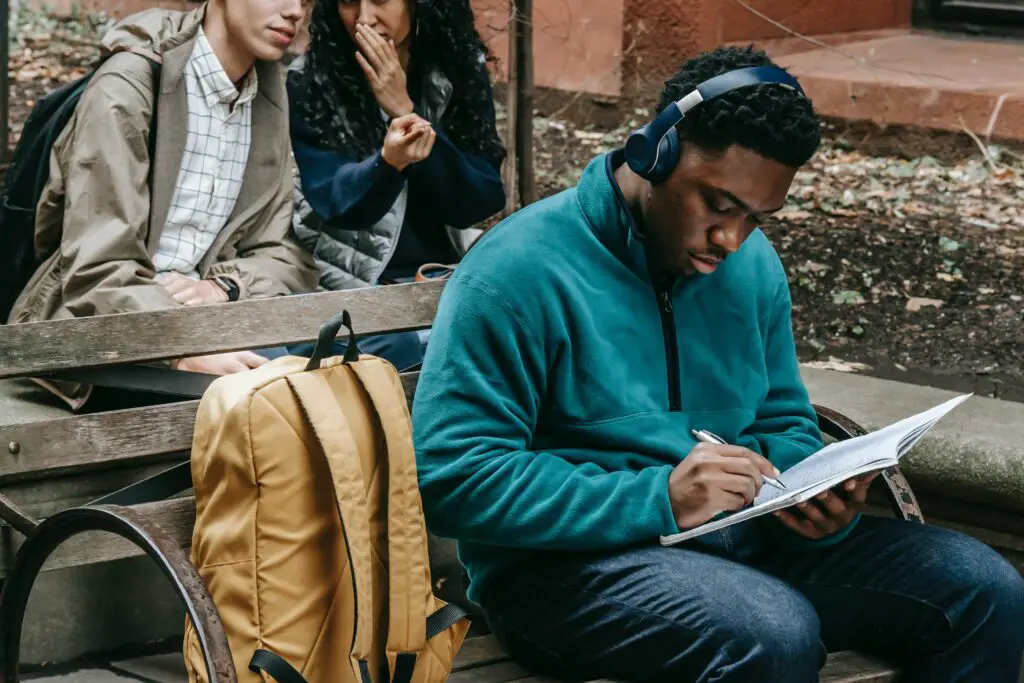Behavior is a significant factor in the admissions process for colleges. This is so that universities can cultivate a diverse and well-rounded student body that will enrich both the campus community and society at large. Let us see do colleges look at behavior.

Do colleges look at behavior?
Colleges look at an applicant’s behavior, especially if the applicant has been associated with serious or violent incidents. This data is used by admissions committees to evaluate applicants’ moral character and judgment as well as their compatibility with the campus community.
Colleges take behavior and character into account when assessing a student’s application. To evaluate a student’s behavioral maturity and character traits, admissions officers look at a variety of factors, such as disciplinary records, extracurricular activities, recommendation letters, and interviews. College admissions officers are more likely to view students favorably and grant admission to those who exhibit positive behavior and character traits.
The role of behavior in college admissions
Discipline records, extracurricular activities, community service, recommendation letters, and character traits that have been demonstrated are some of the main behavior-related factors that colleges may take into account when admitting students. Each of these variables can shed light on a student’s conduct, personality, and likelihood of succeeding in college.
Records of disciplinary actions, for instance, can show whether a student has engaged in conduct that is against the law or school regulations. The type and seriousness of the offense, as well as the steps the student has taken to address and improve, may all be taken into account by colleges. Contrarily, extracurricular activities and community service can highlight virtues and character traits like leadership, cooperation, and altruism.
Reference letters from professors, guidance counselors, and other adults who are familiar with the applicant’s character and behavior can also be useful. These letters may provide insight into the student’s work ethic, moral character, maturity, and other qualities that colleges value.
The impact of disciplinary records on college applications
Colleges have to take into account the potential risks posed by applicants with a history of disciplinary issues because they want to build a safe and encouraging community for their students. Insights into a student’s character, maturity, and capacity for making ethical decisions can also be gained from learning about their disciplinary history.
It is important to keep in mind that not all disciplinary histories automatically bar a student from college admission. The type and seriousness of the offense, as well as the student’s reaction to it, will be taken into account by admissions officers.
For example, if a student has admitted guilt and demonstrated remorse for their actions, a single offense like a minor infraction might not have a material effect on their application. However, more serious infractions like drug or alcohol abuse, physical fights, or academic dishonesty may send admissions officers running.
In these situations, students might be asked to provide more details about the incident, such as proof of rehabilitation or attempts to atone. They might also want advice on how to best address the matter in their application from their high school counselor or an admissions advisor.
Ways colleges assess behavioral maturity and character
During the admissions process, colleges employ a range of techniques to evaluate a student’s behavioral maturity and character. Examining disciplinary records, judging extracurricular activities and community service, taking recommendation letters into account, and even conducting interviews are some of these techniques.
Examining a student’s past behavior, including any potential disciplinary issues, is one of the most crucial aspects of determining behavioral maturity and character. The nature and seriousness of any incidents, as well as the student’s reaction to the incident and any actions they may have taken to address the problem, will all be taken into account by admissions officers.
Colleges frequently look at a student’s extracurricular activities and volunteer work as signs of good character. Admissions officers frequently have a positive impression of students who have shown leadership, teamwork, and service to others because these traits imply a willingness to contribute favorably to the campus community and society at large.
Letters of recommendation can shed light on a candidate’s moral character and level of maturity. A student’s letters from teachers, counselors, and other trusted adults will be read by admissions officers who are looking for evidence of virtues like responsibility, integrity, and compassion.
Strategies for cultivating positive behavior and character traits in high school.
The following techniques can aid students in developing good behavior and character traits:
- Establish priorities and goals: Set time priorities based on specific, attainable goals.
- Participate in after-school activities: Join organizations, teams, or other extracurricular activities that are related to their hobbies and interests.
- Participate in community service: Participate in volunteer and community service activities.
- Self-reflection exercises: Consider your attitude, deeds, and choices. Look for mentoring: Encourage yourself to look for mentors and positive role models in your community, such as educators, coaches, and leaders.
- Develop effective communication techniques: Learn effective conflict resolution techniques, active listening, and other communication skills.
Conclusion
Students should set goals and priorities, participate in extracurricular activities, give back to the community, practice self-reflection, look for mentors, accept responsibility for mistakes, and develop effective communication skills to develop positive behavior and character traits in high school. Students can develop the abilities and traits required to succeed in college and beyond by emphasizing personal development, self-improvement, and community engagement.
Hope, this article has provided you with all the information you need.
